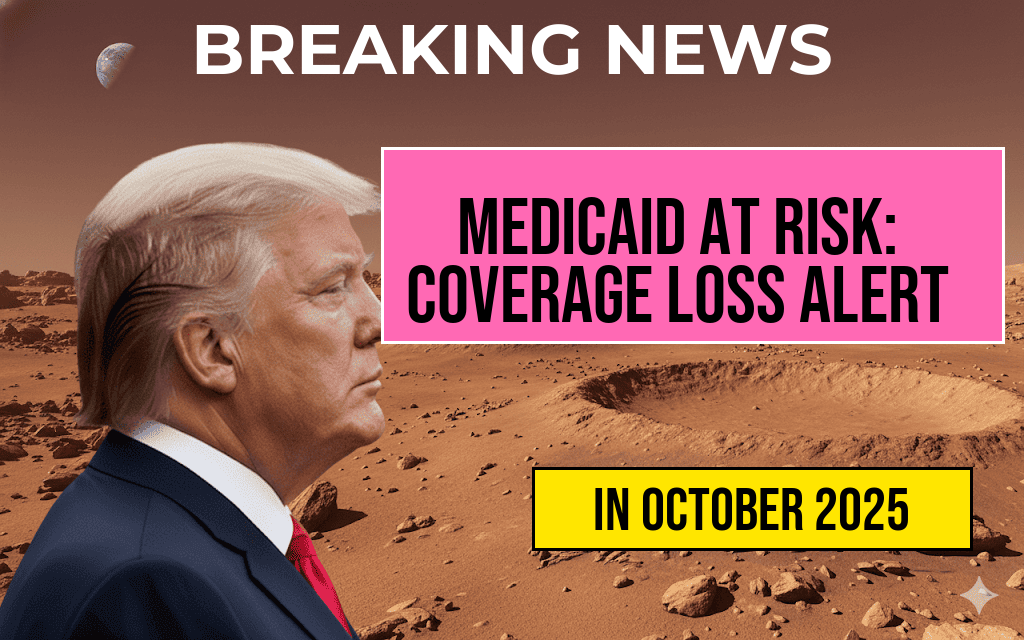Medicaid at Risk: CBO Alerts That Millions Could Lose Coverage Over Potential $1,000 Emergency Room Bills
Recent analysis from the Congressional Budget Office (CBO) warns that a significant number of Americans could unexpectedly lose their Medicaid coverage due to the financial burden posed by large emergency room bills. As healthcare costs continue to escalate, many low-income individuals rely heavily on Medicaid to avoid catastrophic expenses. However, new policy proposals and regulatory changes threaten to introduce financial hurdles that could lead to coverage loss for millions, especially those facing sudden, expensive medical emergencies. The CBO estimates that over 10 million Medicaid beneficiaries might be at risk of disenrollment if they are unable to pay bills exceeding $1,000, raising concerns about increased uninsured rates and subsequent public health impacts.
Understanding the Policy Shift and Its Impact
The potential changes stem from a combination of legislative proposals aimed at tightening Medicaid eligibility and recent modifications to billing and eligibility review processes. Critics argue that these measures, intended to curb Medicaid fraud and reduce state expenditures, could inadvertently penalize vulnerable populations. Under the proposed rules, beneficiaries facing large emergency room bills may be required to pay out-of-pocket costs or face termination of their Medicaid coverage if they do not meet new financial criteria.
Medicaid, a joint federal and state program, currently provides health coverage for over 75 million Americans, many of whom rely on it for essential services. Disruptions to this coverage could leave individuals exposed to mounting medical debt, which in some cases can reach thousands of dollars following emergency visits. The CBO estimates that as many as 4 million beneficiaries could lose coverage due to inability to pay or failure to meet new eligibility tests, with the risk disproportionately impacting low-income communities and minority populations.
Financial Risks and the Role of Emergency Medical Bills
| Scenario | Number of Beneficiaries Affected | Average Bill Size | Potential Coverage Loss |
|---|---|---|---|
| Emergency bill exceeding $1,000 | Up to 10 million | $1,200 | Significant disenrollment risk |
| Billing between $500 – $1,000 | Approximately 6 million | $750 | Potential for partial coverage loss |
| Bill under $500 | Remaining beneficiaries | $300 | Less likely to impact coverage |
The crux of the issue lies in the unpredictability of emergency room costs. While Medicaid typically covers most hospital expenses, beneficiaries are often responsible for copayments or deductibles, especially under recent policy shifts. When faced with bills exceeding $1,000, many cannot afford to pay, risking termination of benefits if they fail to navigate complex eligibility verification processes. Such disruptions not only jeopardize ongoing access to healthcare but also increase the likelihood of deferred care, leading to worse health outcomes over time.
Public Health and Economic Consequences
The potential reduction in Medicaid coverage raises concerns about broader public health implications. Uninsured individuals are less likely to seek timely medical care, which can contribute to the spread of infectious diseases and exacerbate chronic conditions. Moreover, unpaid medical bills often result in debt collection efforts that can devastate family finances. According to data from the Kaiser Family Foundation, hospital systems face financial strain when patients cannot pay, which may lead to increased costs for everyone and strained healthcare resources.
Policy Responses and Advocacy Efforts
Health advocacy groups and some lawmakers are raising alarms about the potential fallout. They argue that policies emphasizing cost-cutting and eligibility restrictions could undermine the very purpose of Medicaid, which is to provide safety net coverage for vulnerable populations. Several organizations, including the National Association of Community Health Centers, are calling for protections that prevent coverage loss due to unforeseen bills and advocate for expanded assistance programs.
Meanwhile, some states are exploring measures to shield residents from losing coverage due to large bills, such as implementing grace periods or income-based payment plans. Experts suggest that strengthening outreach and simplifying eligibility verification could help mitigate the adverse effects of policy changes while maintaining fiscal responsibility.
Looking Ahead
As debates continue in Congress over Medicaid reforms, the potential for millions of Americans to face coverage loss over emergency room bills underscores the importance of balancing fiscal sustainability with access to essential healthcare. Policymakers, healthcare providers, and community advocates must work collaboratively to craft solutions that protect low-income populations from financial ruin while ensuring the long-term viability of Medicaid. The coming months will likely be pivotal in determining whether safeguards are put in place to prevent a surge in uninsured Americans and the associated health disparities.
Frequently Asked Questions
What is the main concern raised by the CBO regarding Medicaid?
The CBO warns that millions of Americans could lose their Medicaid coverage due to potential $1,000 emergency room bills that may lead to financial hardship and loss of eligibility.
How could emergency room bills impact Medicaid recipients?
High emergency room bills, such as those around $1,000, could cause financial strain for Medicaid recipients, potentially resulting in loss of coverage if they are unable to pay or if such bills are counted against their income thresholds.
What are the potential policy implications of the CBO report?
The CBO report highlights the need for policymakers to consider cost management strategies and coverage safeguards to prevent millions from losing Medicaid due to unexpected medical bills.
Who could be most affected by these changes in Medicaid coverage?
Vulnerable populations, including low-income individuals, families, and those with chronic health conditions, are most at risk of losing Medicaid coverage if they face unexpected medical expenses.
What steps can Medicaid recipients take to protect their coverage?
Recipients should stay informed about income thresholds and medical billing practices, seek assistance with financial counseling, and explore coverage options to mitigate the risk of losing Medicaid due to high medical bills.

Leave a Reply